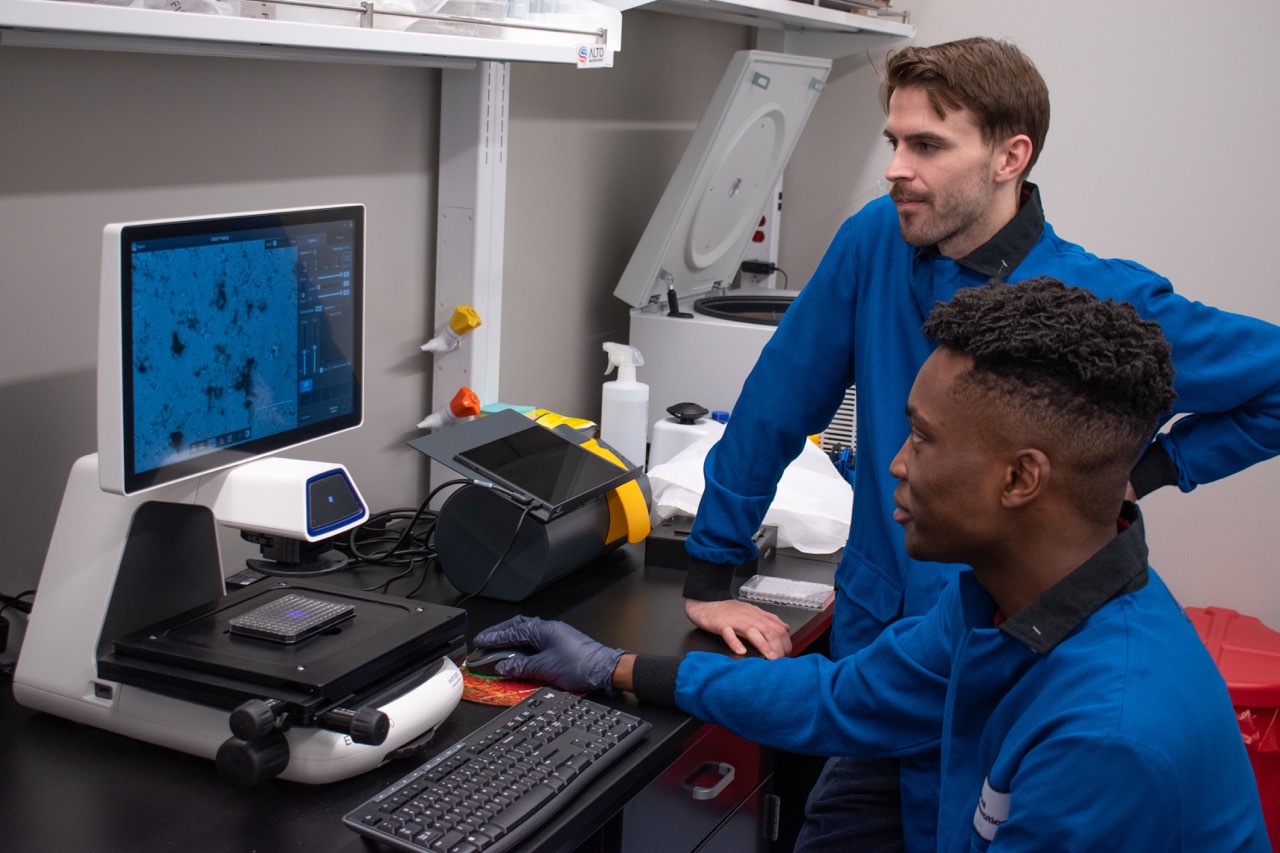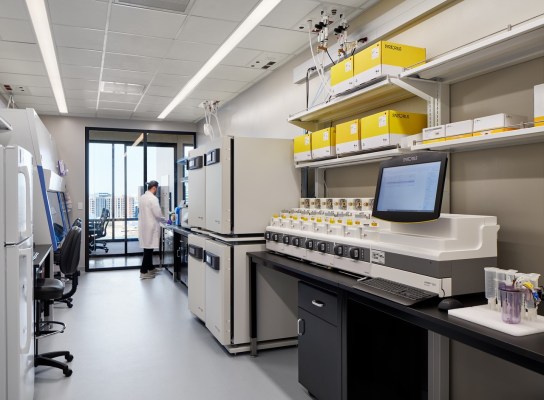When you think of life sciences and biotech hubs in the U.S., where do you travel to in your mind? Boston? The Bay Area? Texas? Portal Innovations, a biotech VC firm based in Chicago, is trying to broaden everyone’s horizons and give opportunities to biotech startups growing out of labs in Chicago, Atlanta, and hopefully beyond.
“I founded Portal Innovations really to address emerging needs for life sciences companies, particularly in ecosystems, like Chicago, that don’t yet have the infrastructure and community to support a growing life sciences community emerging from our research institutions,” Portal’s CEO, John Flavin, explains.
Over the past ten years, universities such as Northwestern, the University of Chicago, and the University of Illinois, have prioritized recruiting innovative faculty into the life sciences ecosystem. Consequently, there is a wealth of investable ideas being cultivated in these labs, but not necessarily anywhere for them to expand without having to look to relocate when they graduate out of the university facilities.
Flavin, in turn, knows about the necessity to relocate. He has spent his career as a biotech entrepreneur, in which time he’s built and taken public three biotechnology companies. The most recent startup, Pyxis Oncology, was spun out of the University of Chicago. Without the necessary lab space in Chicago, it was forced to head to Boston. It continues to grow there, but Flavin saw the need to encourage and support growth elsewhere.
“Momentum and an ecosystem is really important. A couple of years ago we had a lot of innovative people in the marketplace, but they really had only one option and that was to go to other markets to build their companies,” explains Flavin. “By investing locally, by developing the right ecosystem, we’re in a sense bringing Kendall Square to Main Street. That’s essentially what Portal’s doing.”
Portal offers specialized and fully supported lab space to startups that would otherwise struggle to fund it.
“The infrastructure is very specialized wet lab space so you can do chemistry and biology,” says Flavin. This involves chemical fume hoods, equipment to facilitate cell and tissue culture work. “It gives founders the ability to work across a range of different therapeutic modalities ranging from small molecules, polymers and biomaterials in synthetic biology, but also cell therapy, gene therapy mRNA. We support a range of those modalities, with the infrastructure that we build, and the instruments that go into those labs.”

Science in action. Image Credits: Portal Innovations
If you’re wondering how much this sort of lab space costs, you’re looking at upward of $1,000 per square foot to build, according to the Portal team. It’s not just about a building with lab benches. It’s a building that requires permits, with special ventilation systems, equipment on and behind those benches, and the lab technicians to support it.
“It’s not a commercial office space,” Flavin points out. “It comes with all of the safety and operational tax, if you will. It’s not like we have three scientists in the lab running experiments on behalf of companies. We’re providing the backend support, hazardous waste permitting, lab maintenance and support.”
Portal’s labs are a capital-intensive space that a startup could not necessarily afford to fund, even with a beefy seed round. The Portal model is essentially a part of its investment strategy.
“Our core focus is selecting companies based on a venture model. So we’re doing deep diligence to ultimately arrive at an investment decision with conviction around companies that we’re bringing into the space. And so, we are offering space and in that exchange, we have a membership agreement with those companies and they are paying rent typically for the use of individual benches, and desk or office space that they’re able to access on a month-to-month basis,” says Flavin.
Two years into its operation, the investor says that its lab is at full capacity with 35 companies across its 50,000 square feet of space. It has also made capital investments in 12 of those companies. Portal Innovations is operating a $25 million fund and typically provides $500,000 checks into seed rounds ranging from $5 million to $7 million. For Series A funding, it would typically top up its investments with $1 million to $2 million.
The Chan Zuckerberg Initiative recently selected Chicago as its next CZ Biohub outside of San Francisco. Flavin reads this as a validation of University of Chicago’s, Northwestern’s, and University of Illinois’ investment in life sciences, and reaffirms the wisdom of Portal’s commitment to Chicago.
“[The selection] means that more talent will be drawn to the ecosystem, and it will capitalize on the talent here that already exists,” says Flavin. “And there will be more companies that stem from that and at the end of the day, there will be more breakthrough products that help patients.”
The investor is about to stretch beyond Illinois, standing up a second lab in Atlanta, Georgia.
“Same characteristics,” Flavin says of its Georgia expansion. “We believe there’s an unmet and underserved market, but all the characteristics that exist in Chicago — large numbers of NIH grants that are funding researchers — also exist at Georgia Tech, at Emory, Morehouse School of Medicine, at UGA. You’ve got the CDC there, and a growing population of talent that’s being educated there or going there. You have this movement of innovative faculty because of the efforts that have been made at the top of those universities to try to prioritize innovation and recruit those innovative faculty.”
And now because the researchers and the ecosystem are evolving in Georgia, Portal is betting that there is an opportunity to further shore up the infrastructure.
“They need the wet labs. They need seed capital. And they need the know-how to build biotechnology companies beyond getting the science right,” Flavin concludes.
For Portal, it isn’t so much a case of build it and they will come, but build it, and they will stay.
